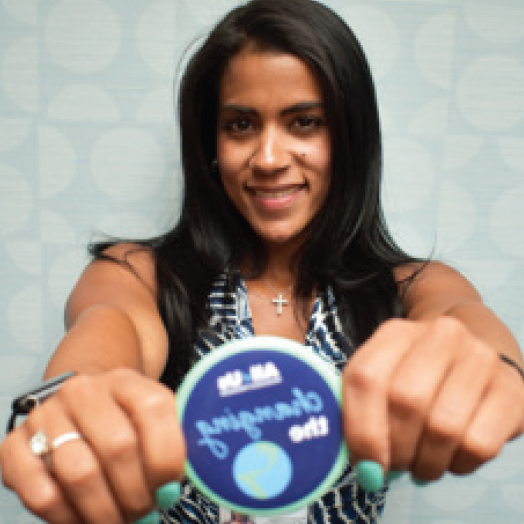Health research like this affects our daily lives in lots of ways, even during more normal times. It helps us learn how to stay healthy. For example, years ago, studies found that high cholesterol, smoking, and high blood pressure raise people’s risk for heart disease. Knowing this, your doctor may have recommended that you exercise more, change how you eat, or quit smoking. Research also finds new ways to treat health problems, helping people to live longer, healthier lives. New treatments have helped lower death rates from conditions such as cancer, diabetes, heart disease, and AIDS. There’s still a lot we don’t know about how to stay healthy and how to treat health problems. And that’s where you—and All of Us—come in.
Heart Disease
At the May, 2019 All of Us symposium, Dr. Francis Collins, director of the National Institutes of Health, talked about the All of Us Research Program and about the Framingham Heart Study, which started in the 1940s. That study has led to breakthroughs in heart disease prevention and treatment. “In some ways, All of Us is a bit like Framingham, but 40 times bigger, covering all health conditions, consisting of a much more diverse cohort, and using technologies never dreamed of in 1948,” Dr. Collins said. “I think it’s safe to say that the potential for All of Us is almost boundless.”
Through the study, scientists learned that high blood pressure and high cholesterol levels can raise people’s risk for heart disease. This was a huge discovery that has impacted and continues to impact a lot of lives. Seventy-two years later, the study is still going with more than 14,000 participants, and we continue to learn about ways to improve heart health. Like the Framingham study, over time, All of Us will collect a rich body of data from participants like you to help advance research. The information you choose to share, including your electronic health records (EHR) and surveys, will be part of the largest health data resource of its kind, ever. Researchers can use this data to conduct thousands of studies, which may lead to new treatments and new ways to prevent disease from occurring in the first place. Sharing your health information with All of Us over a stretch of many years is essential to making this happen. We want to make sure we get information from all types of people, especially those who have been underrepresented in research.
Meet Some Participants Who Joined Because of Heart Health
Judy’s daughter has a genetic heart defect. Wanting more cardiology research is one reason Judy wanted to join All of Us.
Cancer

“I lost my sister to cancer in August, 2015. I witnessed her battle for 9 years through many “trail and errors” treatments. She was given different pills and went through many chemotherapy sessions that did not help her. I would like future generations to have a better outcome than she did: tailored treatments and preventive care for all. We as participants may not directly benefit from the All of Us Research Program but we can help change the future of health together. I am proud to be one in a million." - Migdaliz

My mom was diagnosed with Leukemia. No doctor could ever figure out why she got it. No doctor was able to figure out what medications or treatments would work the first time around when she started her treatment, because of this, I want to be part of research. I want to give back to the community, and I do that as part of the All of Us Research Program. I am ‘one in a million.’” - Paula
Diabetes
Diabetes is a disease that occurs when your blood glucose, or blood sugar, is too high. Blood glucose is your main source of energy and comes from the food you eat. Insulin, a hormone made by the pancreas, helps glucose from food get into your cells to be used for energy.
In most people with type 1 diabetes, the body’s immune system, which normally fights infection, attacks and destroys the cells in the pancreas that make insulin. As a result, the pancreas stops making insulin. Without insulin, glucose can’t get into your cells, and your blood glucose rises above normal levels.
In type 2 diabetes, your body doesn’t make enough insulin or doesn’t use insulin well. Too much glucose then stays in your blood, and not enough reaches your cells.
Over time, having too much glucose in your blood can cause health problems, such as heart disease, nerve damage, eye problems, and kidney disease.
Experts estimate that more than 1 in every 10 Americans have diabetes. That’s more than 30 million people. And many, many more people are at risk for developing it later in life.
That risk depends on many things, including a person’s family health history and their race or ethnicity. Diabetes is more common and often more severe for Hispanics, Latinos, and African Americans than it is among non-Hispanic whites. Scientists don’t fully understand why this is the case. That’s why it’s very important that diabetes research, as well as all other health research, include people of all races and ethnicities. And that’s why All of Us Research Program is gathering information that can help researchers learn more.
Brooke explains her family history of diabetes, her experience with "one-size-fits-all" medicine, and why she thought it was important to join the All of Us Research Program.


